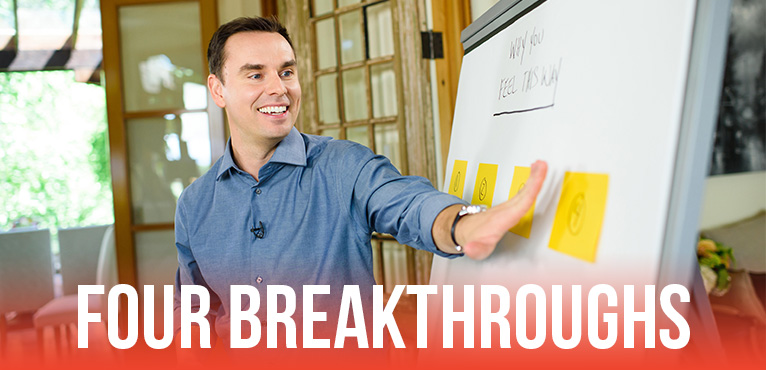SUMMARY
- “When we rise to becoming our best, when we are vibrant and connected, and we are fulfilled because we’re doing work that we love, we take care of people, we’re being good leaders, that’s when we get to change not only our lives, but we get to change the world.”
- Whether you’re new to working from home or it’s always been a part of your routine, these 10 tips will help you gain clarity on your goals, focus on needle-moving activities, and help you get more done than you have before!
- “Are you being prolific at creating the outputs or the deliverables that really matter to move your career and your mission and your life forward?”
- Being productive at home can be challenging with all the distractions. In this episode, learn ways to develop an effective routine that sets you up for success!
- Watch the video to get the full training.
- Already have the High Performance Planner and CRUSHING each and every day? Let’s celebrate you! Take a photo with your planner and use #HPXlife or #TeamHPX.
HOT NEWS & DEALS!
-
Free Trial for Reignite Your Life course!
Enjoy a free trial for my Reignite Your Life course where I help you break the pattern of negative thinking and bad habits so you can deeply reconnect with your purpose! Click here to gain access.
-
High Performance Planner!
This is the 2-in-1 planner and journal achievers use to win the day and accelerate long-term success. Get yours here (while supplies last)!
DID YOU KNOW?
I give weekly prizes, gratitude and shout-outs to our students, so post a screenshot or video on Instagram and use #TheBrendonShow! I can’t wait to hear your thoughts about this episode!
RELATED POSTS
Optimize Your Health and Productivity
Time Management: Automation vs. Delegation
Create Your Battle Board! (My Secret to Productivity)
Rethinking Productivity
Productivity Design: Distraction vs. Discipline
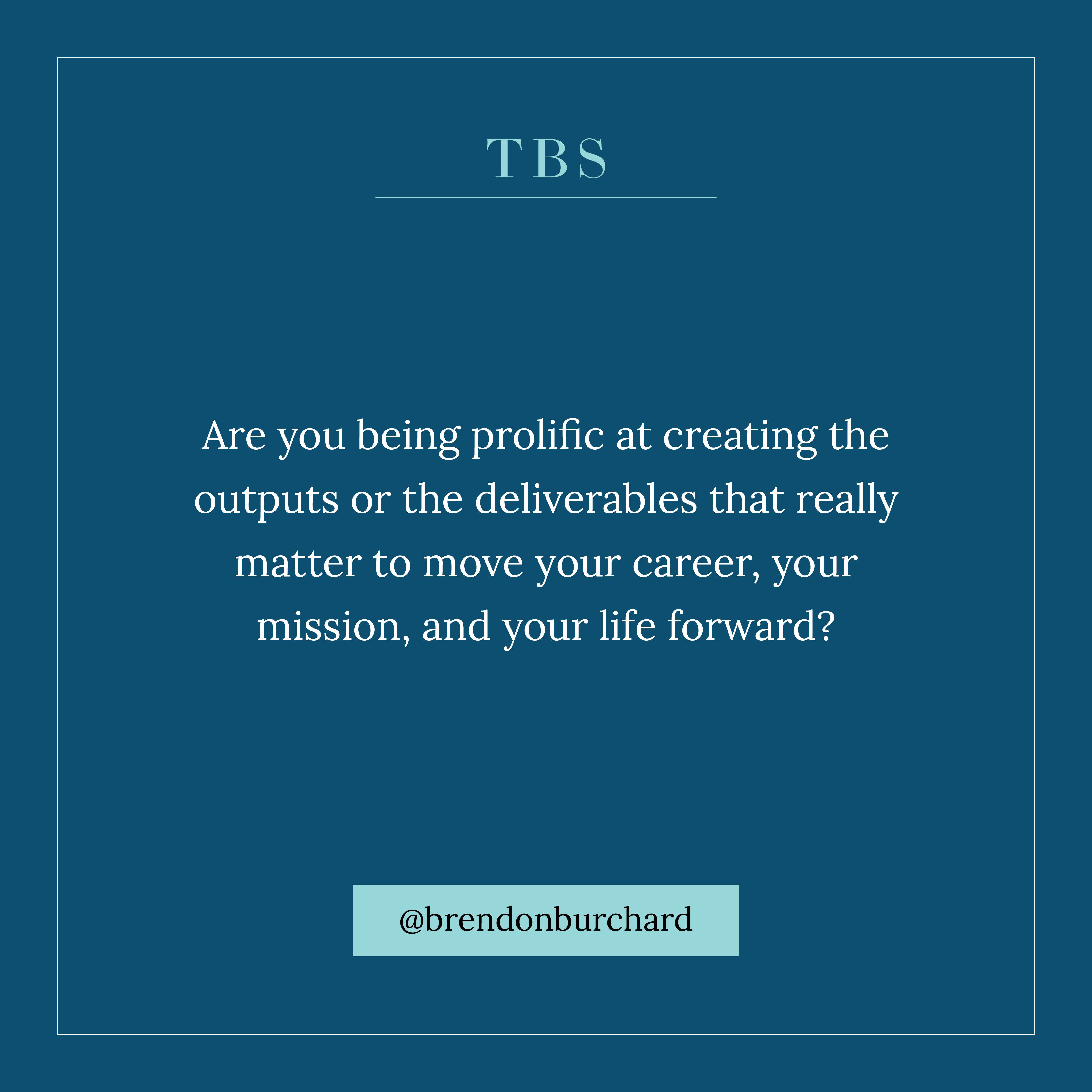
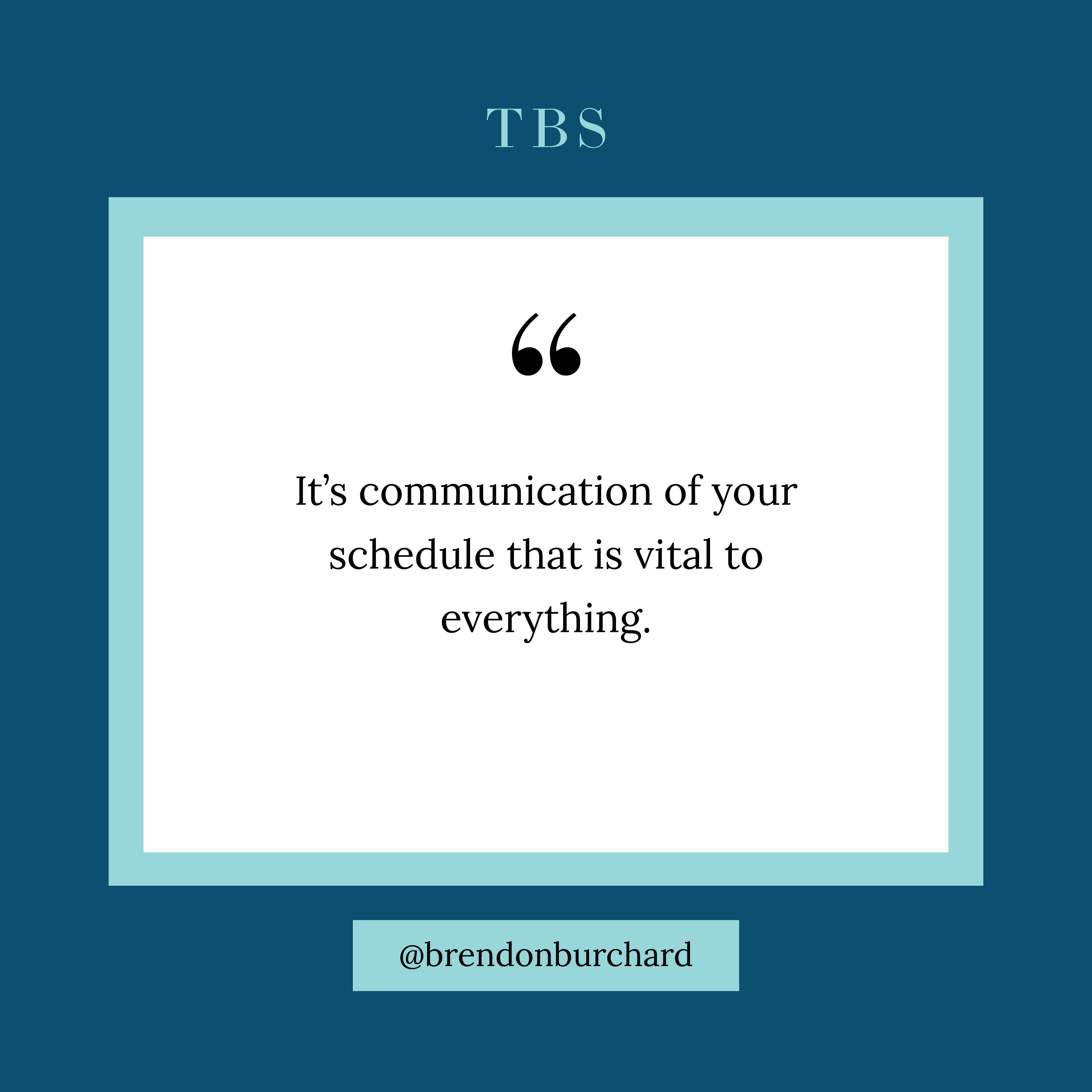
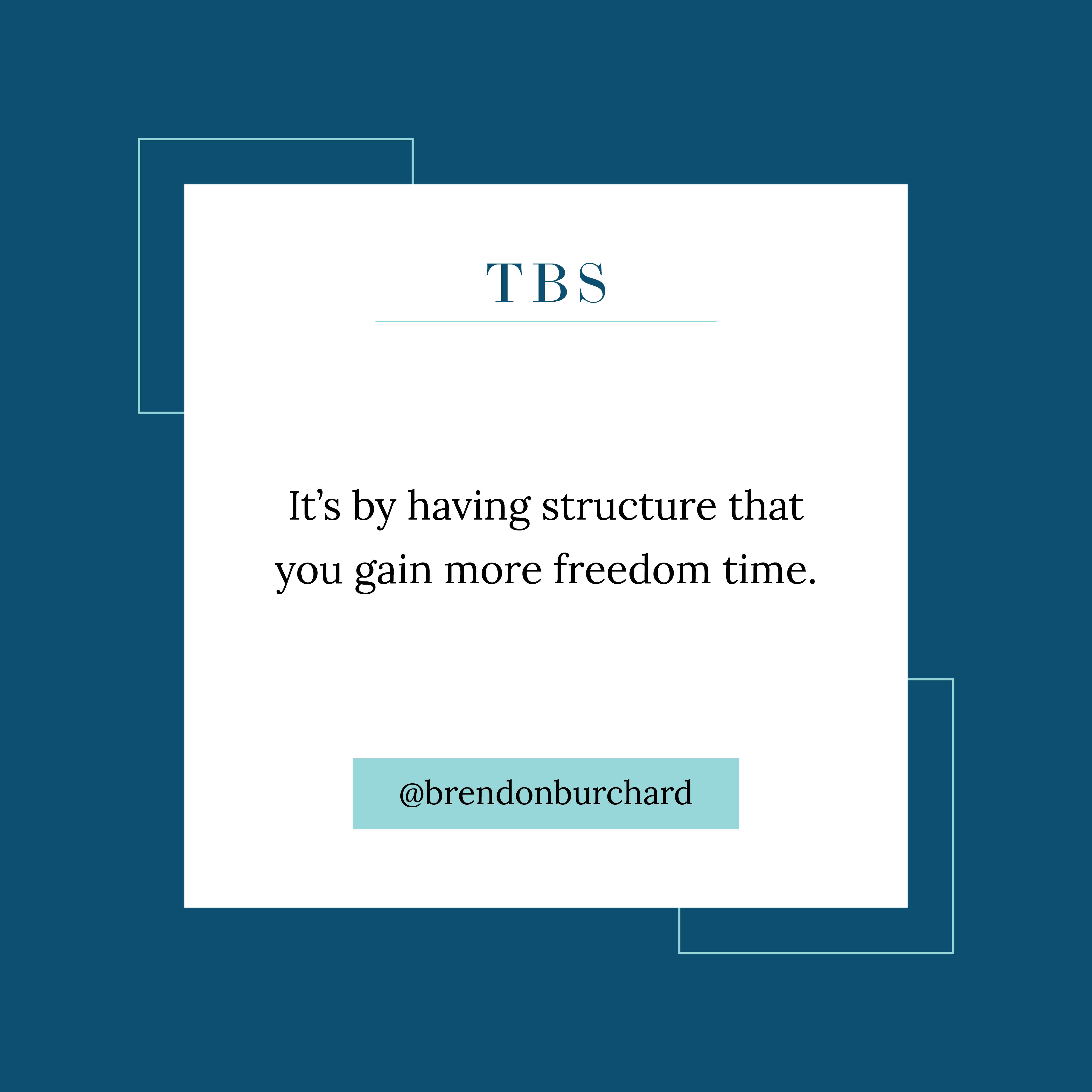
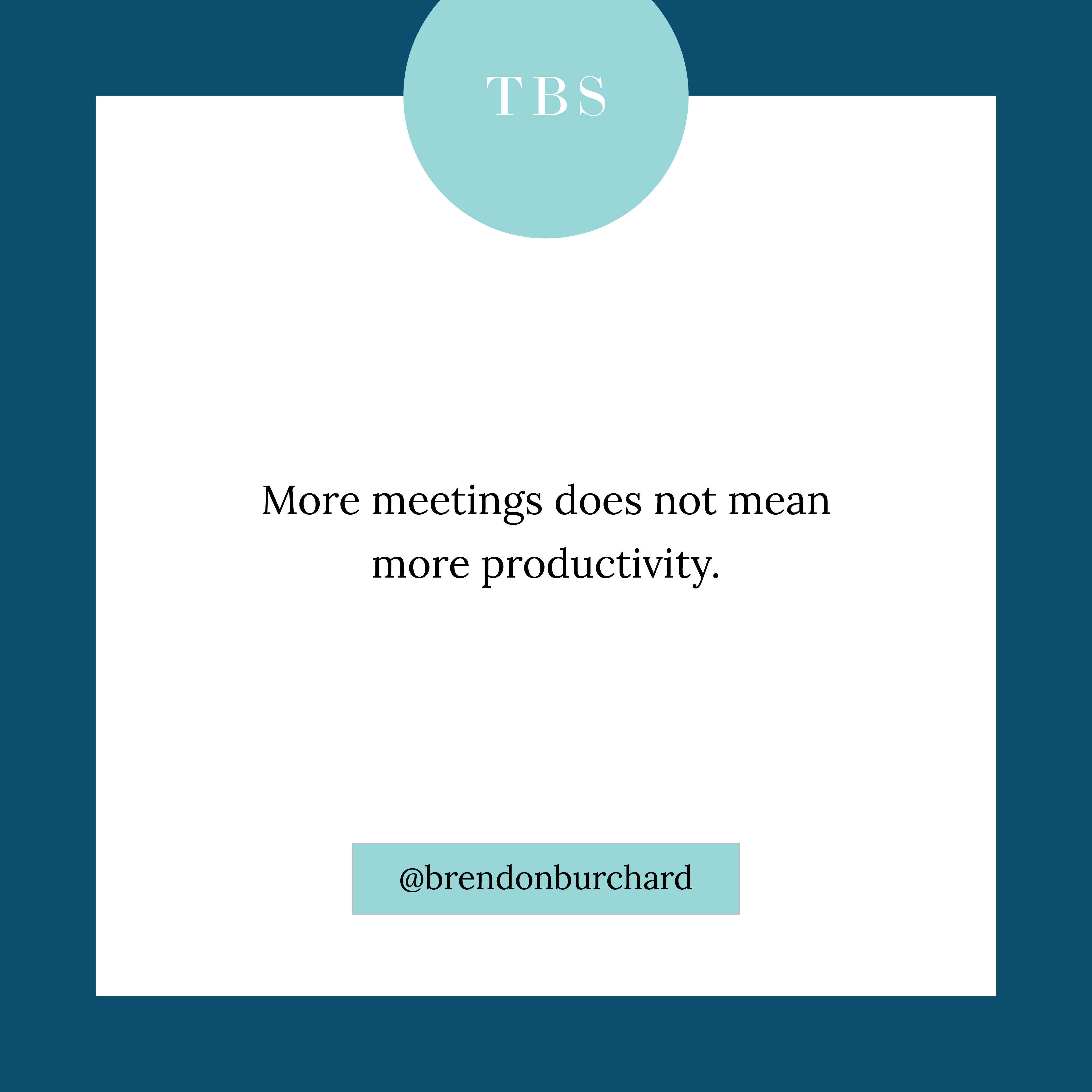
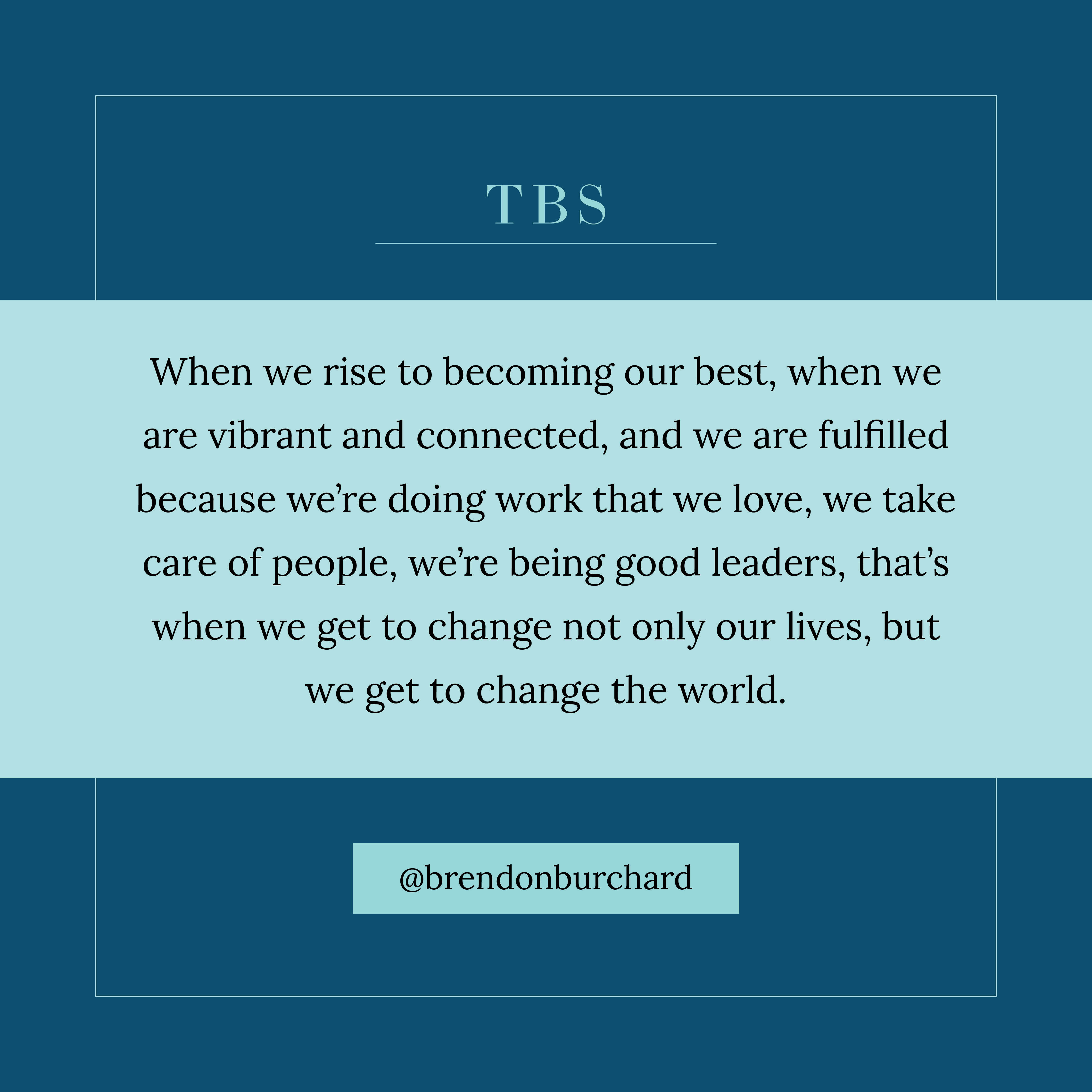
FULL TRANSCRIPT
[The following is the full transcript of this episode of The Brendon Show. Please note that this episode, like all TBS episodes, features Brendon speaking extemporaneously–he is unscripted and unedited. Filmed in one take, The Brendon Show has become one of the most viewed unscripted, direct-to-camera self-help series in the history of YouTube. It has also been the #1 Podcast in all of iTunes and is regularly in the top podcasts in Self-Help and Health categories around the globe. Subscribe to the free motivational podcast on iTunes or Stitcher.)
Hey my friends, it’s Brendon Burchard, and welcome to a special episode of The Brendon show. In this episode, we’re going to talk about working from home effectively, joyously, productively, successfully, and for many people who are now just working from home for the very first time, I know it seems like a big hurdle and feels so different. Some of you love it. Some of you hate it. Worse, most people think there’s some surprise secret that is going to allow you to be so much better at home than it was at work. And the truth is what makes you a productive and effective and successful human being does not change based on where you happen to arrive that day.
You know, people who’ve worked from home for a really long time, or worked at cafes for a really long time, or worked on the road, have learned that it’s really not necessarily about the context of the situation, it’s: how do you show up and get stuff done?
Are you being prolific at creating the outputs or the deliverables that really matter to move your career and your mission and your life forward?
That’s ultimately one of the biggest questions. So today I’ll be sharing with you 10 of sort of my, like my hit list, if you will. These are the 10 things that make me productive in working from home. I hope that they will serve you, but also remind you, listen, no matter where you’re working or what you’re doing, you’ve got to be a high performing person. And that’s going to take a lot of mental management, energy management, emotional management, management of other people so you can set boundaries and get things done. But some of the very same rules apply when we teach high performance productivity at corporations, or if you’re at home working from the kitchen table, many of the rules still apply. And so I hope that you’ll find this session to be full of common sense-type things, but now it’s about making them common practice. So you can be on your A game, deliver excellent value, and move your career, your mission, your life forward.
So let’s go through the 10 things that I do to work from home effectively.
1. Set Yearly, Monthly, and Weekly Goals
Number one, I never forget that when we talk about work, it must be contextualized in yearly, quarterly, monthly, and weekly goals.
If you show up to your kitchen table or the side office that you set up over the side of the house like this, nothing you do really matters unless you are aiming towards something—that you have a clear vision, clear ambition, clear deadlines, clear deliverables. You must know what you’re about this week, this month, this quarter, and this year.
What makes an efficient team in corporate America or an efficient team if it’s a husband and wife, or you’re working with your friend or your brother, it’s all about: what are we after this year? So I begin this entire thing with: do you know what your goals are by the end of this year? Do you know what this month’s goals are, and next month’s goals are? Do you know what this week’s goals are? Literally, as you’re watching this, I’d love for you to think about: do you know the 10 things that you were after this week, specifically, what you’re going to do this week?
And if not, let’s not fool ourselves that “oh, gosh, working from home is hard because I’m interrupted by this person or that person, or now I’m doing a lot of virtual Zoom meetings.” No, you don’t know what you want. That is the problem. You don’t have clarity.
And no clarity, no change. No goals, no growth.
So let’s be honest. It doesn’t matter where you’re working from; home, cafe, on the road, in the car, I don’t care, at the end of the day, do you know what you are after? So doing the time, taking the time to know what your yearly, quarterly, and weekly goals are, are absolutely essential to success.
2. Have a Friday Finisher List
Number two, having my Friday Finisher List. What does that mean? It means like, I’ve got a list here of the things that have to happen by Friday. It is my Friday Finisher List. It means that Monday, when I go to work, I am aware of all the things I need to get done and complete by Friday. And that’s what I use, that unit time called a week for, is making sure I get all these things done by Friday. I know that by Friday 5:00 PM or whatever time I want to finish working on Friday, that this list of deliverables have happened and they are done, and they are complete for the week.
And if I can stay on track with that, oh my gosh, the year just proceeds so much more effectively. Now I know some of you are going to be like, “it’s hard to stay on track,” so we’ll talk about that too.
3. Block Time
Third big thing for me is block time.
Block time means that you schedule blocks of time during the day in which that is the time you are specifically doing one thing.
That’s the time you are having the meeting. That is the time you are creating the presentation. That is time for your outbound calling. That is the time that you do email. That is the time that you do social media. It’s blocks of time that are scheduled and written out so that you’re not always just going by the whim and by how you feel. Now I know creatives will say, “oh my gosh, that sounds miserable, Brendon, because in all that structure, I lose my freedom.”
No, it’s by having structure that you gain more freedom time.
It’s by having the discipline that you get more freedom. It’s by having the structure that then when you execute that structure and you have more free time. If you’re just going completely free all day, especially from home, it’s like all of a sudden you were going to work that day, but then you did five loads of laundry, you chat with the kids. You did this project over here and everything just kind of fell apart.
You did a lot, you were busy, but things fell apart over a period of time without structured discipline sets of time, what we call block time, that allows you to move ahead. Block time is most efficiently scheduled in that 35 to 55-minute timeframe in our productivity studies. So usually for me, as an example, I’ll say for the next 15 minutes, I’m going to work on these email sequences to go out to my email newsletter list. Great, that’s all I’m going to do. During that time I don’t check my phone. I don’t check social media. I don’t randomly check the news. I don’t have any other browsers open that aren’t exactly relevant to that one task. And that’s what allows me not to be being pulled away from social media or notifications on my computer, or randomly checking other stuff. Nope, that is the time that those things happen. And the more that I can do that, the better.
Like this video right here, this block of time was scheduled three days ago that I was going to sit here and do this session for you. And I think that’s just what is necessary for all of us to succeed. Full disclaimer, I didn’t know what the topic was going to be, but my team suggested this one, and you might like this. If you do like this topic, please let us know in the comments down below.
4. Take Hourly Breaks
Okay, so what else? Oh gosh, I would say the next big thing is hourly breaks every hour, so I tend to do my block time between 35 minute and 55-minutes blocks of time where I just work on one thing. But on average, about 50 minutes, I have a desk, a standing desk that has a timer and a button on it, and I can set it for 45 or 50 minutes, and when it goes off, I’m done. If I’m working from somewhere else in the house, I’m not at this specific desk, I have my phone with me, I set a timer, if my butt hits a chair, 50 minutes goes off.
And when it goes off at 50 minutes, I get up, I drink some water, I might hit the ground and do like four or five Vinyasa flows or little yoga. I will stand in place, bounce in place, literally bouncing in place, closing my eyes, taking 10 deep breaths, just open up the airways, to close my eyes, to reset my eyes ’cause the screen is so fatiguing on the mind and the eyes. And you know, I might only have a break of two, three, four minutes, and then I’m back at it.
But for you, listen, when you’re home and like to work 50 minutes solid and then take a five-minute break to get a snack or a five-minute break to throw in a load of laundry, or a five-minute break to make sure the kids are still alive, whatever you have to do, that’s a really great block of time. Why? Because the world’s largest study of productivity that has ever been done with over 2,000,000 data points, 2,000,000 people participating, found that the most productive people tended to take a break at 52 minutes.
At every 52 minutes, they took a break. And it almost didn’t matter how long the break was. It was, did they have the discipline of having a break, what I often call a pit stop to just recharge? Listen, if you recharge throughout the day, well obviously throughout the day, you’re going to have greater mental energy, greater physical vitality, greater stamina in doing your work than if you just burn straight through. ‘Cause then what happens? You hit two o’clock you’re wasted, you hit three o’clock, four o’clock, you’re completely ruined, like your brain is so fried you’re not even effective anymore. And if you had just taken a few more breaks to reset, those recharge sessions, right? Every 50 minutes, a little break, every on the hour, every break just gives you more energy to make it throughout the day. I think that’s important. Totally vital for me. I’m useless if I try to work five, six hours straight, it’s awful. Nothing great comes from it. No great art, no great teaching, no great service.
5. Schedule with Family
Next up, number five, scheduling with family, right? Scheduling with whoever’s in your household for them to know when you’re going to work, how long you’re going to work, that’s so important. Have a Sunday meeting with your family and say, “Okay, this is what dad or mom is doing this week. Here’s what’s going to happen Monday, Tuesday, Wednesday, Thursday, Friday,” meaning, getting everybody on board to the schedule and sticking to it, right? Maybe for some of you that means you get up the same time every day. This happens with the kids. This happens with yourself to get your morning routine going. This is what you do when you go to work. And everyone knows, okay, mommy doesn’t come out of that room over there until noon. Like she’ll be in there doing work. We have interruption rules, which we’ll talk about, but people need to know.
“Hey, you know what, honey, I’m going to be in the room where they’re shooting video for the next two hours. You won’t see me, I won’t come out, I won’t be checking messages.”
It’s communication of your schedule that is vital to everything.
6. Establish Interruption Rules
Now, number six, this is important. Interruption rules. If they know your schedule and when you’re working, when are people okay to interrupt you and how should they go about it, right? Should the kid just be allowed to burst in the room and scream at you anytime that they want? Well, I know some people say, “Well, of course that’s what kids do.” And other people though, they’ve figured out a way to communicate with the kids to set some of those boundaries. I know it’s difficult at different times of their lives. At the same time, you can still teach kids or teach people in your life, your spouse, your partner, others who walk in, how they should engage with you when they’re interrupting you.
It’s like, “Hey, you can come in here, but don’t scream.” That’s the rule. Like simple rules, and you’ve got to stick to them. It’s like, you can’t say it once, you can’t say it twice, you have to teach people 50, 60, 70, 80, 90 requests before they absolutely get it. Because people are stuck in their own head, especially kids or other people in your house who are also working, right? ‘Cause something is coming up on their radar, they need your time and attention and it’s frustrating for them, they got to come in and interrupt you. So you got to teach the interruption rules.
And here’s the secret, if you’re in a house with other people and you know their interruption rules and you stick to those, they’re more likely to return the favor.
7. Meal Prep
Number seven, working from home. This one’s everything. Everything. Meal prep, okay? If you’re working at some company and they provide lunch, you’re so lucky, you just show up, there’s lunch. If you’re working for some company and they don’t provide lunch, but you get that lunch hour, you get to knock off, take a break, go get some lunch or go eat some lunch with some friends or by yourself. But it’s kind of scheduled and it’s expected.
But in real life, when you’re at home, I bet many of you are like me and all of a sudden, it’s like two, three, four in the afternoon—I haven’t eaten any lunch or I haven’t eaten anything. You know, you just get busy doing your passion and your art or whatever, then you look and be like, “Oh my, I have not eaten.” And then you go to the fridge and there’s nothing. So you eat the crap in the pantry. Meal prep, I’m going to admit on this one, Denise is my savior on this thing. Our fridge is always full of good and healthy things. That is a life changing thing for me because when I was a single young man, there was nothing ever in the fridge and I’d be super hungry, so I’d eat like crap. And then I’d feel like crap. And I’d lose that ability to work in a productive and focused way.
So what I recommend to you is just make sure that going into the end of your day, Sunday, or as you plan your day, Sunday, you look out to Monday, Tuesday, Wednesday, Thursday, Friday, and you stock up on groceries that are ready to go for the week. It doesn’t mean you have to prepare every meal, it just means: do you have the groceries you need to survive the week? Including healthy snacks that will support you throughout the day. I think that’s really important, meal prep, have that down.
I would say in my opinion, diet and sleep are the two simple wins to nail, just like when you’re working from home, get those right. You’re at home, get those right. Everything will change.
8. Schedule Email and Social Media Time
Okay, number eight, this is really important. And I mentioned this earlier, but it’s really important. It’s scheduling email and social media specifically. As an example, I only check social media twice per day on average. And let’s say there’s something crazy going on in the world, which as we’ve seen has been a lot recently, but in general, I do about 15 minutes of email checking, right before lunch each day and then I do about 15 minutes right before, I’m sorry, not email. I do 15 minutes of social media before lunch each day. And I do 15 minutes before dinner each day. And that way, the rest of the day, what’s happening? Work, getting things done, doing the deliverables.
Social media at home kills people. And here’s what I mean by that. When you’re at work, you can’t just sit at your desk on your phone, checking social media, coworkers are like, “Hey, do something.” But at home, you’re totally allowed to get away with that nonsense. You’re totally allowed to, like at your work computer, you don’t want to have people notice you on Amazon or shopping all day, but at home, no one’s seeing your screen and no one’s seeing you on your phone. And so you tend to abuse those things at home. And people lose so many hours.
I mean, if you spend 30 minutes just browsing social media during the day that’s not purposeful, that 30 minutes ends up being almost a full month of workdays gone throughout the year, literally that much. So you have to be very careful about it. And so that’s why I schedule it. Email, social media, and news, all scheduled. And here’s what the great thing is, some days I don’t have time for that crap. So I don’t even look and it keeps me mentally healthy.
9. Take a Significant Afternoon Break
Next step, number nine, always important for me, a significant afternoon break. When people work from home, they tend to work later because you know, throughout the day they might’ve done some laundry or done some meal prep or have been with the kids, or had to run some errands, but they tend to work later when they’re at home. And so for me, it’s important to get a significant afternoon break. For me, that specifically means I take a long walk in the afternoon with my wife, Denise, or I take a full 20 to 40-minute meditation session in the early afternoon, which for me means anywhere around that, anywhere between 3:00 and 4:30, I might take 20 full minutes of meditation or a nap if I don’t take a walk with Denise because it’s a complete reset and I can work later with that recharge than if I don’t.
10. Schedule Less Meetings
And number 10, last big idea, do everything you can to schedule less meetings, everything you can to schedule less meetings because meetings at home lead to, “okay, I did that meeting, I did that thing, oh, okay, now let me go wander and cleanup around the house, okay, that task is done. That was the one thing I had to do to see people today.”
And then, you know, what do you end up doing right after that Zoom call? Well probably another five, and you’re like, “Why do I not listen to Brendon, and do less Zoom calls?” What you end up doing is you end up kind of blowing off some stuff. “Okay, these meetings were exhausting, I’m going to go watch a show or I’ll consume some social media or clean some stuff up” versus saying, “Okay, what are the deliverables that are necessary to get done today? What are the outputs that matter today?” Maybe it’s an email to your list. Maybe it’s a prospect call. Maybe it’s that keynote presentation. Maybe it’s that, you know, that pitch you’re going to make, but something that you’ve got to complete. Like that should be the priorities. Meeting should never, ever, ever be a priority to someone who matters, who really cares about productive outputs. Meetings are not productive outputs and they rarely move things forward that couldn’t have got done over email.
I know this is going to be controversial ’cause people can say, “Well, Brendon, I don’t see people as much anymore, I’m not at work. Don’t I have to check in with them more and be on Zoom calls with them more?” Well, how’s that worked for you? If you’ve been working from home for a little while now, aren’t you tired of those Zoom calls? I’m totally okay to do virtual meetings, like when the team first goes working from home. Sure, that first month, check in a lot, but then don’t get trapped in the same idea that people are falling for, for years, which is that more meetings means more productivity. It doesn’t in almost everything that’s ever been studied across the genre of productivity.
More meetings does not mean more productivity.
And when you’re at home, like I said, because you derail after a meeting, it’s super important to only do meetings that absolutely move the needle forward. If it doesn’t move the needle forward for you, I suggest you delegate it to somebody else on your team. I suggest that you have another teammate run it and report back to you what happened there. And I suggest that you focus instead on what needs to be produced by the end of that week that will move your career, your mission, your company forward. It’s all about productive quality outputs, not just a bunch of conversations about, “how are you doing? Yeah, it sure is crazy right now.”
And I hope that that helps. These are my thoughts for what keeps me on my A game at home. All the other rules of high performance habits applies. So if you have not read my book, High Performance Habits, please read it. There is nothing in that book that applies to you being at corporate America or you at home. Those habits of high performance are the things we know without any question whatsoever, worldwide in 190 countries, help people become more successful over the long term than their peers. So if you haven’t picked up High Performance Habits recently, pick it up, check it out, go get the audiobook version, go get the audible version. Just go get it on Amazon. I don’t care where you get it, but revisit your high performance habits because those apply as well. I hope this helps you as a random check in.
My team asked me to cover this, I hope it serves you. Please down below in the comments area, at least if you’re watching this on YouTube, would you please post your favorite things that you do while working from home that helps you? What else am I missing? Do you light some incense and some candles, do you get up and do jumping jacks? Do you take certain supplements? Do you manage your work, meetings, or your team in a certain way? What tools do you love to use? I would love to hear all of your recommendations in the comments down below. And last but not least, I wish you and your family safety and health, and strength, and optimism during these turbulent and chaotic times.
People keep saying this is historic, these are unprecedented times. And you know what, it is. It is a great opportunity for you to show leadership in the world, to demonstrate a good attitude, to show up and serve with love and heart, and excellence in kindness and patience at a time when a lot of the people have lost that. So if you show up and you’re a role model now in a historical moment, people will recognize it and celebrate it later on. So be your best now, demand the best of yourself. People say, “Well, Brendon, that’s a lot to expect from people. I’m like, “Yep.”
And I expect it from myself, and I expect it from other people because when we rise to becoming our best, when we are vibrant and connected, and we are fulfilled because we’re doing work that we love, we take care of people, we’re being good leaders, that’s when we get to change, not only our lives, but we get to change the world.


